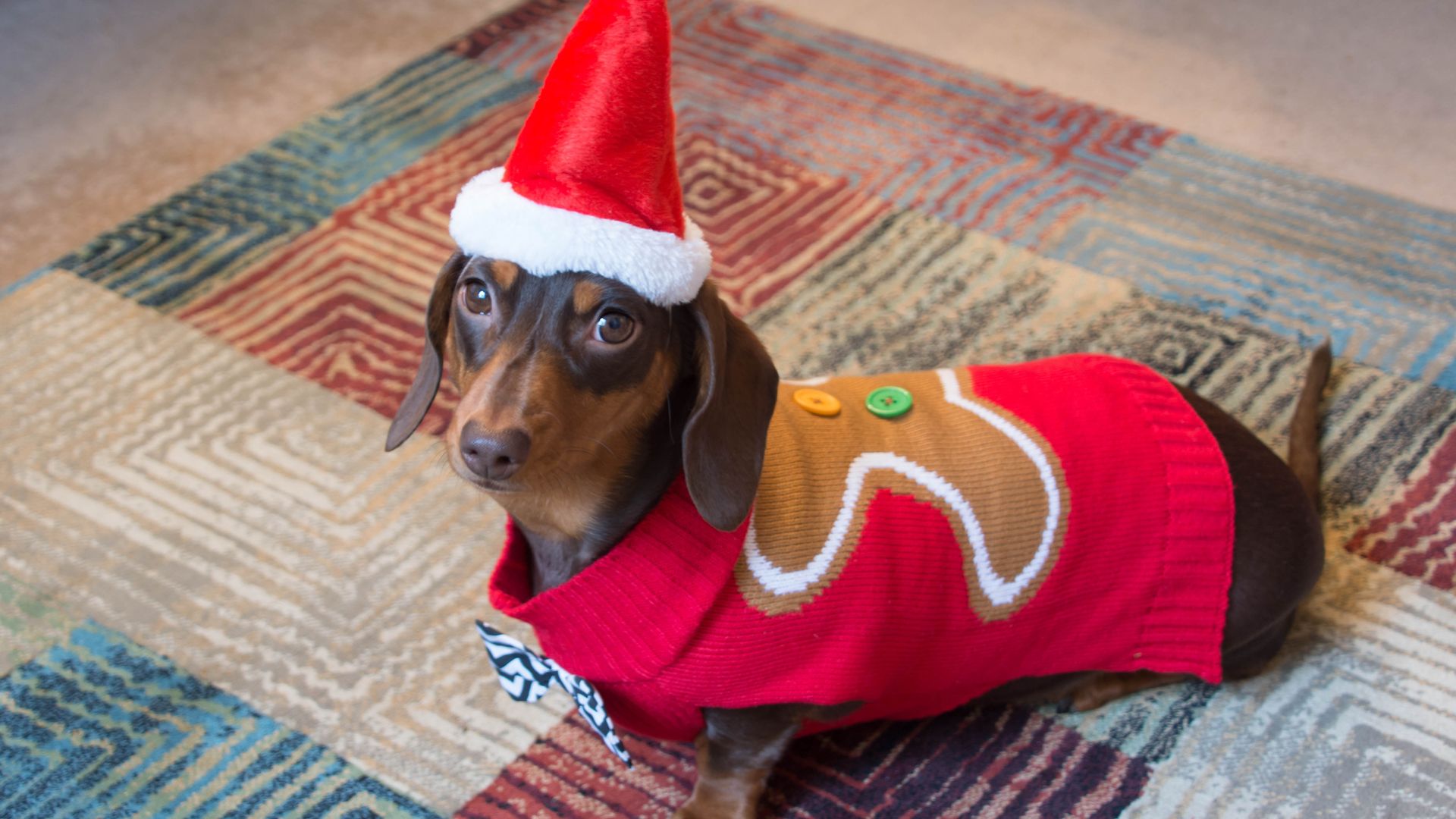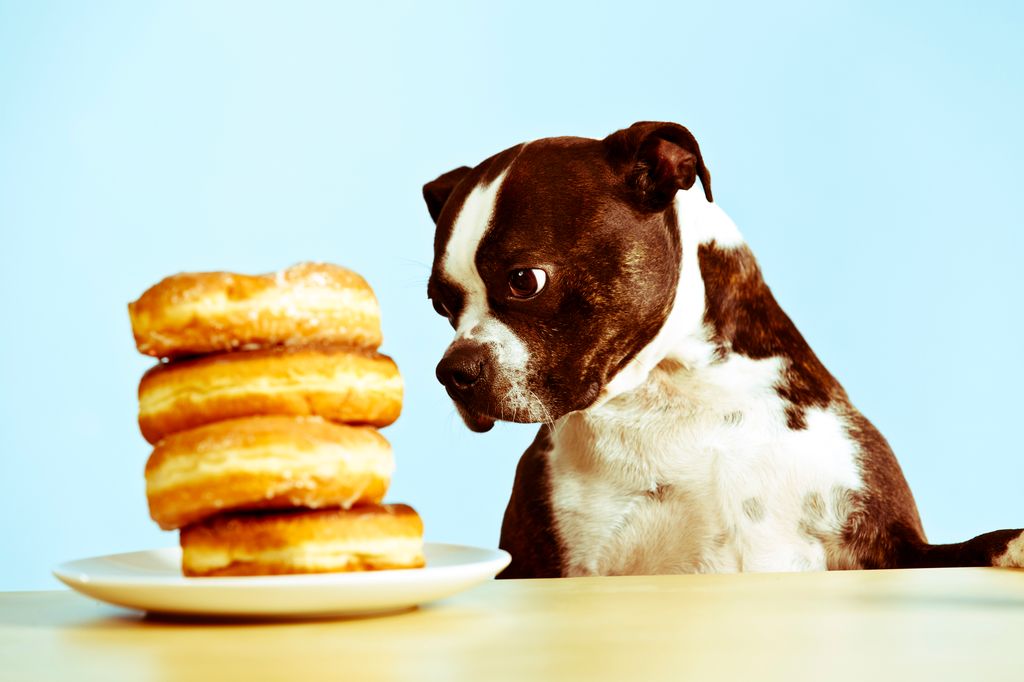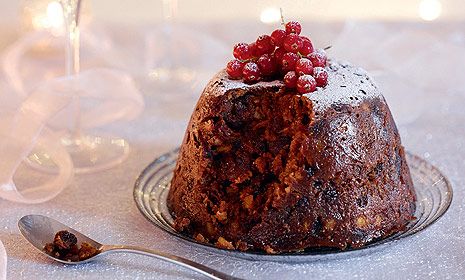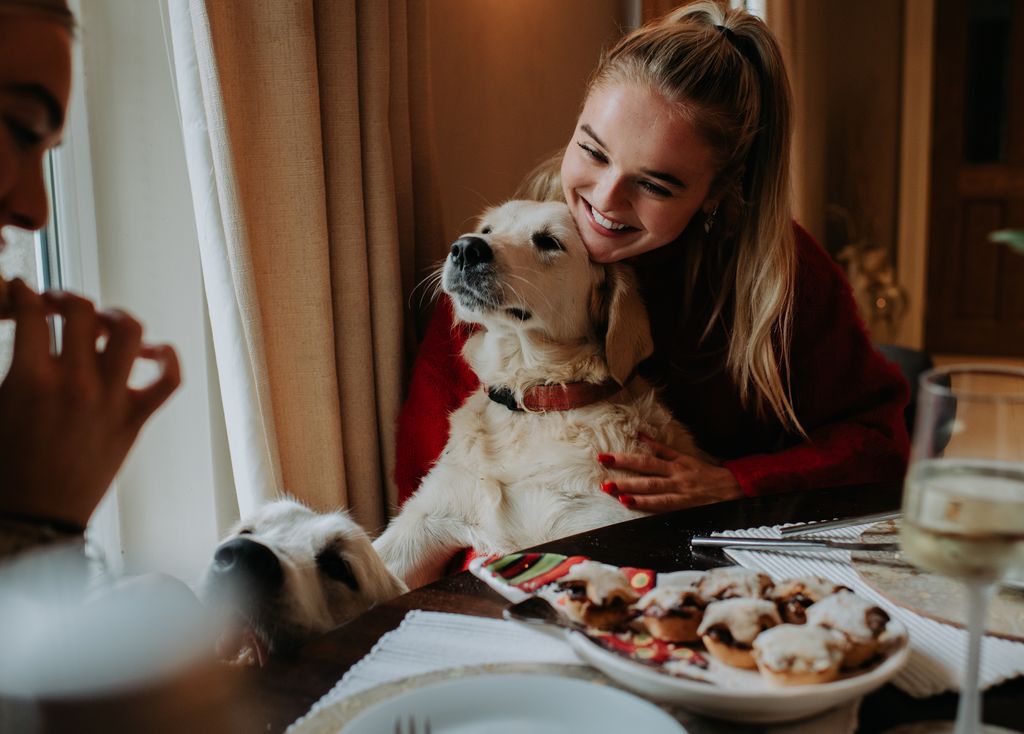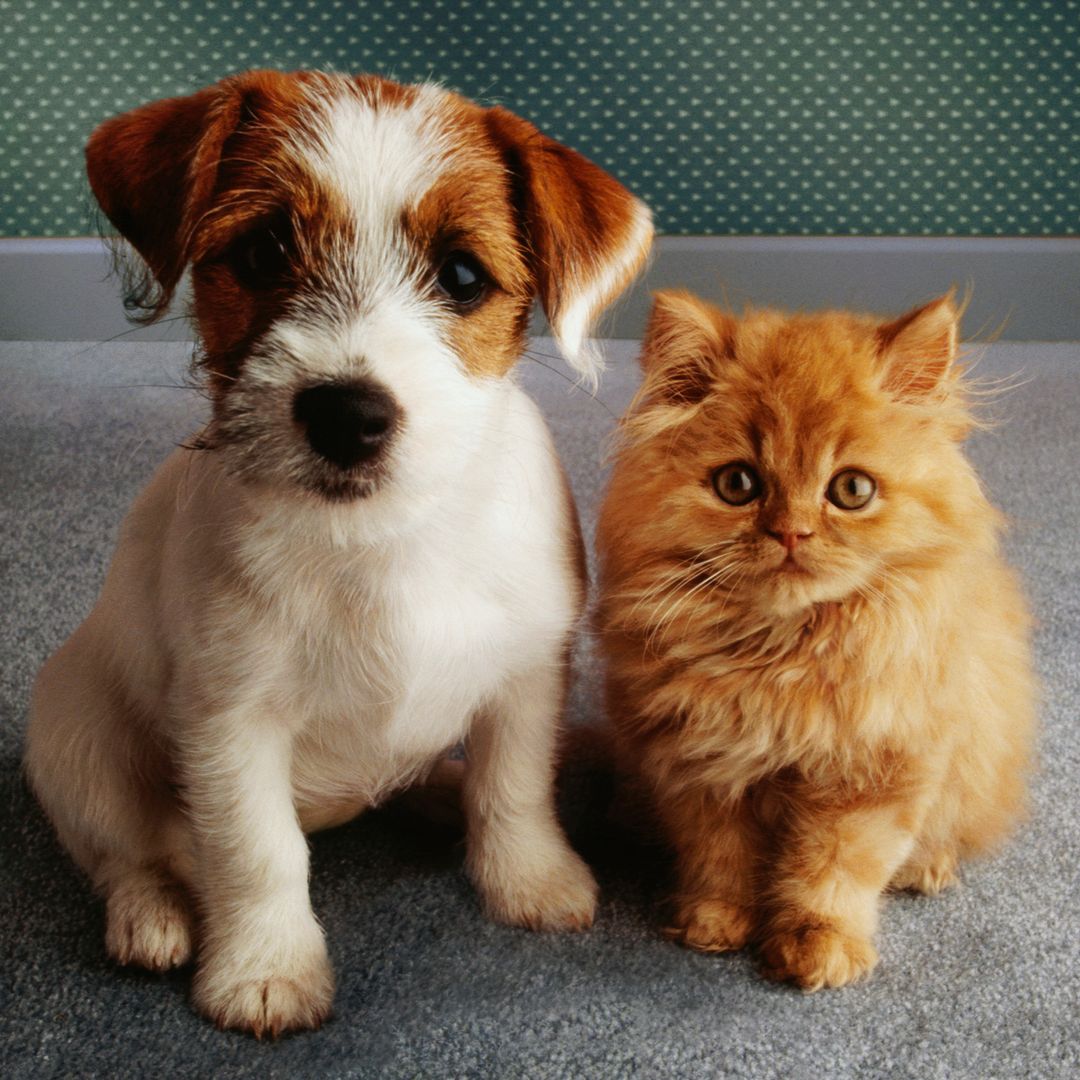It may be tempting to allow your dog to join in with the festivities at Christmas time, whether that's sharing your Christmas meal, decorating your pet's space or allowing them to sport novelty fashion items - but latest research suggests several festive hazards could be putting your pet at risk.
According to previous research by GoCompare Pet Insurance, 70 per cent of UK dog owners could be putting their dogs in danger over Christmas, with everything from toxic foods to dangerous plants posing a threat to our furry friends over the festive season.
Data shows just 22% of dog owners realise poinsettia plants can be toxic, while a third knew that Christmas pudding is dangerous, and a staggering half of owners thought that they can safely feed their dogs chocolate.
Read on to discover the hazards to look out for this Christmas time to keep your furry friend as safe as possible over the holidays.
Never feed your dog chocolates or sweets
The darker the chocolate, the more dangerous it can be for your pet. Cocoa contains the toxic chemical theobromine, which dogs can't digest properly.
Many sweets are made with an artificial sweetener called xylitol which is also poisonous to dogs. Plus, the small size of most sweets makes them a choking hazard.
Hannah Isitt, pet expert at GoCompare said: "If you want your pet to join in the Christmas festivities safely, you might like to try Carob 'chocolate' for dogs or look for festive themed treats from your pet’s preferred food brand."
Don't give your pet Christmas cake or mince pies
Many Christmas cakes and mince pies contain raisins or currants, which are highly toxic to dogs. Even if your dog doesn't have immediate symptoms, you should always take them to the vet immediately if you know they've eaten a raisin, as they can develop acute kidney injury which may lead to liver failure.
Avoid giving your dog fatty or spicy foods
Fatty and oily foods like nuts, dairy products and meat drippings can upset your pet’s stomach. Some spices, including nutmeg, allspice and cloves can cause a poorly stomach and more extreme cases can lead to seizures. Dry spices can also lead to coughing and choking if inhaled - so keep your pup away from the seasoned food this Christmas.
Cooked bones can be a choking hazard
When cooked, bones can become brittle which means they can splinter inside your pet, becoming a choking hazard or piercing their internal organs. If you want to give your dog a bone, always opt for a chew toy approved by an official pet shop.
Never give your dog alcohol
Though it may be tempting to let your pup lick the brandy butter bowl clean, pets can’t digest alcohol as quickly as we can, so even a small amount can have a huge effect. Your pet can experience the feeling of being drunk and even get alcohol poisoning, which is painful and confusing for your canine.
LOOK: 11 royal families who are proud dog owners
Festive plants can be poisonous
"It’s also important to consider other hazards this festive season, such as some plants like Mistletoe, Holly, Lilies, Amaryllis and Poinsettia, which can all make your pet ill," explained Hannah. "Even decorations like tinsel, lights and candles can be dangerous if consumed or inhaled by your pet, along with small gifts and wrapping paper."
For more information on keeping your pet safe at Christmas, please click here: https://www.gocompare.com/pet-insurance/safety-at-christmas/
